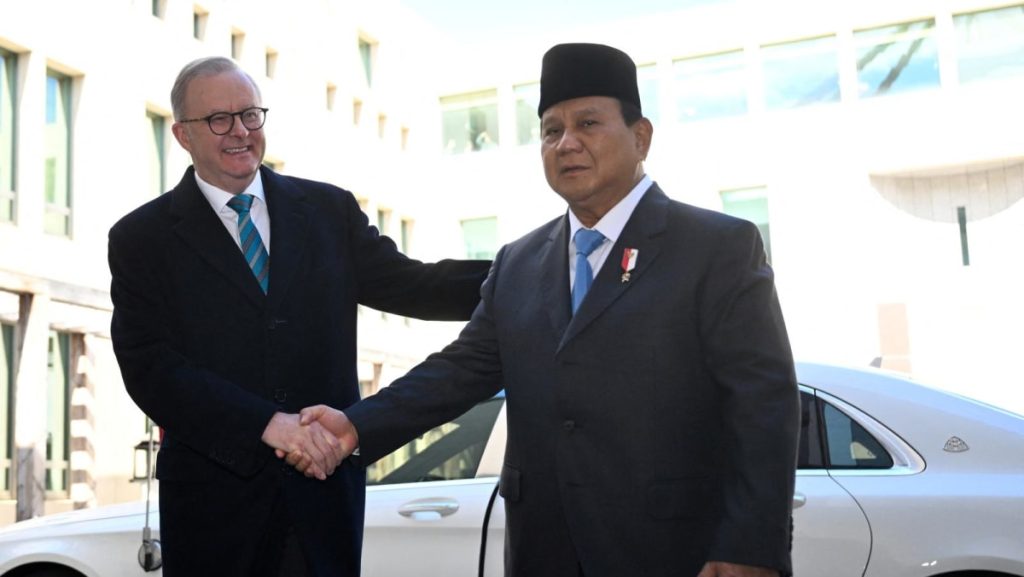Australia and Indonesia have signed a treaty-level defense cooperation agreement that allows their militaries to operate from each other’s countries. This agreement, described as a vital plank for supporting each other’s security, is important for both countries and the stability of the region they share. In a joint press conference with Indonesian President-elect Prabowo Subianto, Australian Prime Minister Anthony Albanese emphasized the significance of the collaboration between the two nations, which already work together on issues such as security, people-trafficking, and drug smuggling.
The relationship between Australia and Indonesia is strengthened by their shared border, which is the world’s longest maritime boundary. This proximity has led to a recognition of a shared destiny between the two neighbors. Australian Defence Minister Richard Marles highlighted the deep strategic trust that will now define this shared destiny as a result of the new defense cooperation agreement. The agreement represents a significant step forward in the collaboration between the two countries and sets the stage for enhanced security cooperation in the future.
Australia’s recent defense deals, including the AUKUS military alliance with the United States and Great Britain, have raised concerns in the region, particularly among countries like China. However, Prabowo Subianto stated at a forum last November that Indonesia remains committed to its policy of non-alignment and intends to maintain good relations with both China and the United States. This approach is reflective of Indonesia’s efforts to navigate its relationships with major powers to ensure its security and national interests are protected.
The defense cooperation agreement between Australia and Indonesia is part of a broader effort to strengthen security in the region and address common challenges such as transnational crime and security threats. By working together on defense matters, the two countries are better equipped to respond to these challenges and enhance the stability of the region they share. The agreement signifies a deeper level of trust and collaboration between Australia and Indonesia, which will be instrumental in addressing shared security concerns and supporting each other’s security interests in the future.
While the defense cooperation agreement between Australia and Indonesia marks an important development in their security relationship, both countries are also mindful of the need to balance their relationships with major powers like China and the United States. Indonesia’s commitment to non-alignment reflects its desire to maintain its independence and sovereignty while engaging diplomatically with a range of partners. By striking a careful balance in its foreign relations, Indonesia aims to secure its national interests while contributing to regional stability and security.
In conclusion, the defense cooperation agreement between Australia and Indonesia is a significant milestone in their bilateral relationship, opening up new opportunities for collaboration on security matters. The agreement reflects a deepening level of trust and strategic partnership between the two countries, which share a border and face common challenges in the region. As they work together to address security threats and transnational crime, Australia and Indonesia are strengthening their security cooperation and contributing to regional stability. By maintaining a policy of non-alignment and carefully managing their relationships with major powers, both countries are positioning themselves to safeguard their national interests while fostering peace and security in the region.













